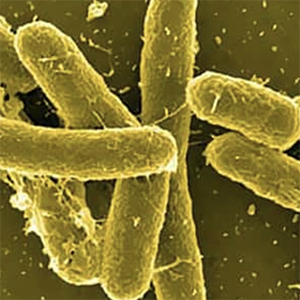Resistome and virulome diversity of foodborne pathogens isolated from artisanal food production chain of animal origin in the Mediterranean region

HTML: 17
All claims expressed in this article are solely those of the authors and do not necessarily represent those of their affiliated organizations, or those of the publisher, the editors and the reviewers. Any product that may be evaluated in this article or claim that may be made by its manufacturer is not guaranteed or endorsed by the publisher.
Authors
The aim of the present study was to investigate the resistome and virulome diversity of 43 isolates of Listeria monocytogenes, Salmonella enterica and S. aureus collected from artisanal fermented meat and dairy products and their production environments in Portugal, Spain, Italy and Morocco. After DNA extraction, genomes were sequenced, and de novo assembled. Genetic relationships among genomes were investigated by SNP calling and in silico 7- loci MLST. Genomes of the same species belonged to different ST-types demonstrating the circulation of different clones in in the same artisanal production plant. One specific clone included genomes of S. Paratyphi B belonging to ST43 and repeatedly isolated for more than a year in an artisanal sausage production plant. No genomes but three (belonging to Salmonella enterica), were predicted as multiresistant to different antimicrobials classes. Regarding virulence, genomes of L. monocytogenes belonging to ST1, ST3 and ST489, as well as genomes of S.enterica enterica (ST43, ST33, ST314, ST3667, ST1818, ST198) and ST121 S. aureus were predicted as virulent and hypervirulent. The occurrence of virulent and hypervirulent L. monocytogenes, Salmonella enterica and S. aureus strains in artisanal fermented meat and dairy productions as well as in their finished products suggests the need for a specific focus on prevention and control measures able to reduce the risk of these biological hazards in artisanal food productions.
Supporting Agencies
This work was funded within the EU H2020 PRIMA Project ArtiSaneFood “Innovative bio-interventions and risk modelling approaches for ensuring microbial safety and quality of Mediterranean artisanal fermented foods” (PRIMA/0001/2018). U. Gonzales-Barron and V. Cadavez are also grateful to the Portuguese Foundation for Science and Technology (FCT) for funding PRIMA/0001/2018; and for financial support through national funds FCT/MCTES (PIDDAC) to CIMO (UIDB/00690/2020 and UIDP/00690/2020) and SusTEC (LA/P/0007/2021).How to Cite

This work is licensed under a Creative Commons Attribution-NonCommercial 4.0 International License.
PAGEPress has chosen to apply the Creative Commons Attribution NonCommercial 4.0 International License (CC BY-NC 4.0) to all manuscripts to be published.
Similar Articles
- Valentina Indio, Chiara Oliveri, Alex Lucchi, Federica Savini, Ursula Gonzales-Barron, Panagiotis Skandamis, Fouad Achemchem, Gerardo Manfreda, Andrea Serraino, Alessandra De Cesare, Shotgun metagenomic investigation of foodborne pathogens and antimicrobial resistance genes in artisanal fermented meat products from the Mediterranean area , Italian Journal of Food Safety: Vol. 13 No. 2 (2024)
- Cecilia Crippa, Alessandra De Cesare, Alex Lucchi, Antonio Parisi, Gerardo Manfreda, Frédérique Pasquali, Occurrence and genomic characterization of antimicrobial-resistant and potential pathogenic Escherichia coli from Italian artisanal food productions of animal origin , Italian Journal of Food Safety: Vol. 13 No. 2 (2024)
You may also start an advanced similarity search for this article.

 https://doi.org/10.4081/ijfs.2022.10899
https://doi.org/10.4081/ijfs.2022.10899



